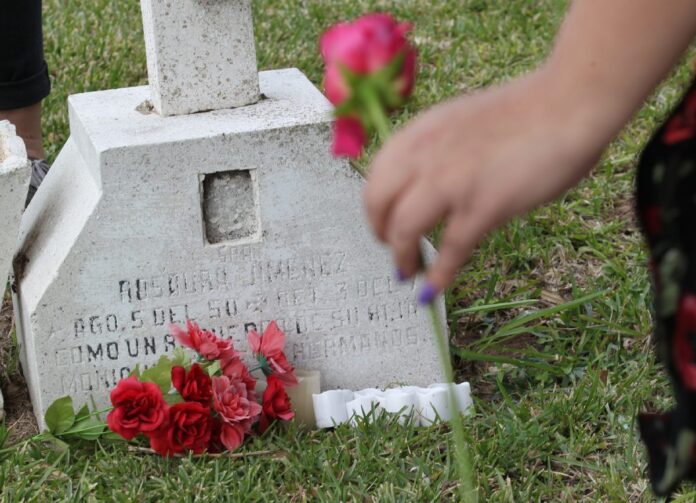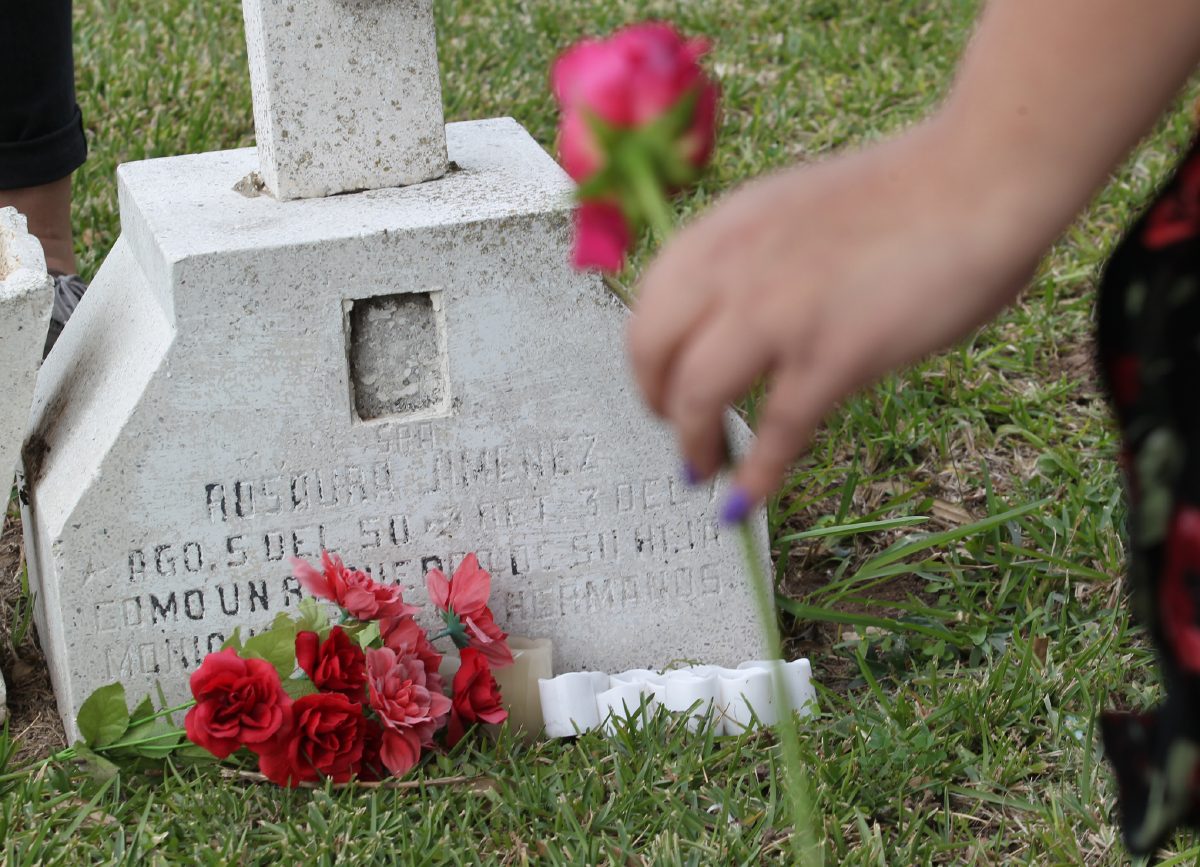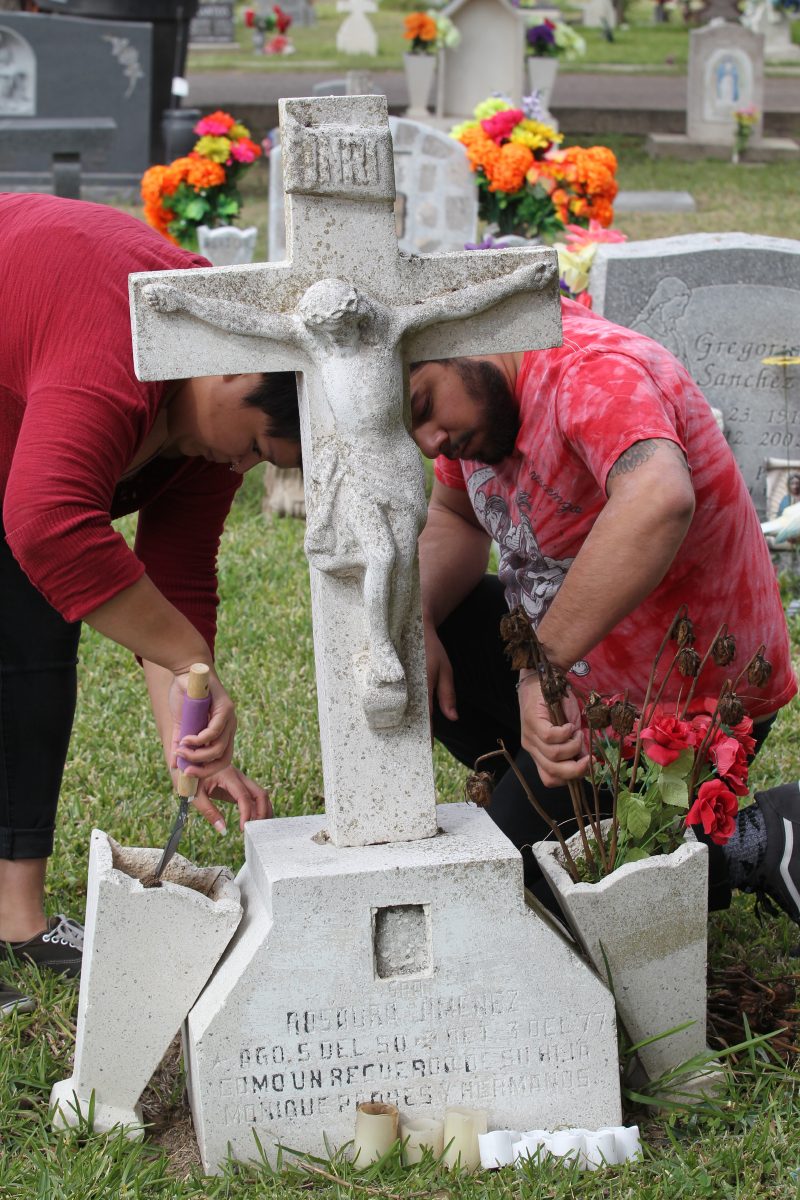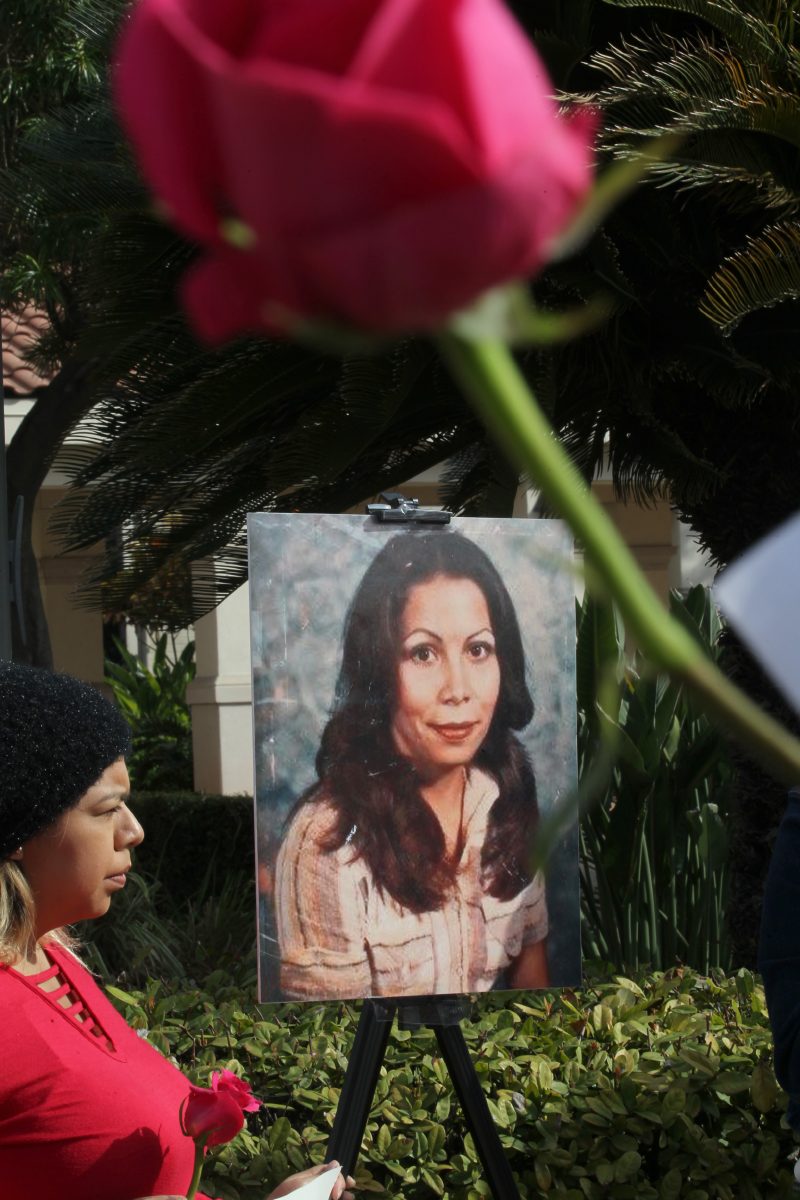McALLEN — A small group of reproductive rights activists stood in front of city hall here Thursday morning, each clutching a single pink rose as they voiced their support for a longshot bill filed in memory of a McAllen woman who died of an illegal abortion.
House Bill 895, also known as “Rosie’s Law,” would provide state-paid abortions for Medicaid recipients like Rosaura “Rosie” Jimenez, who died in October 1977 at McAllen General Hospital (now City Hall) after contracting a bacterial infection from an abortion an unlicensed midwife performed.
Although abortion was legal when Jimenez stepped into the midwife’s home four years after the Roe v. Wade Supreme Court decision, the Hyde Amendment, passed just months before her death, prohibited federal funds, like Medicaid, from covering the procedure.
Jimenez is the first woman known to have died from an illegal abortion after the Hyde Amendment was passed.
The 27-year-old single mother, college student and Medicaid recipient, couldn’t afford the procedure at an OB-GYN office like the one catty-corner from the then-city hospital, which stands today as Whole Woman’s Health of McAllen — the Rio Grande Valley’s only abortion clinic.
“It’s important that we acknowledge that Rosie Jimenez was one of us,” said Cathy Torres, an organizer with Frontera Fund, an organization that provides financial assistance to low-income and undocumented Rio Grande Valley women seeking an abortion. “She was our friend, our cousin, our tía… that’s who she was and that’s who she always will be.”
Denni Arjona, the Rio Grande Valley advocacy coordinator for Whole Woman’s Health, spoke of the struggles women on Medicaid still face to pay for the procedure out of pocket, even with the help of vouchers provided by local and national abortion funds.
“My heart breaks knowing Rosie Jimenez was found with $700 of her scholarship check in her purse — money she could have used for a safe abortion but (she) prioritized her education and her ticket to a brighter future,” Arjona said. “I think about patients and how no one should have to make these extreme decisions, but in a largely low-income region this is still a reality.”
These sentiments were echoed by activists at the Capitol in Austin Thursday who joined Rep. Sheryl Cole, D-Austin, as she publicly unveiled her bill, which is the first of its kind in the state.
“We have to stand together as women, regardless of income, regardless of race, regardless of personal circumstances, because we are the anchors to our families,” the first-term representative said. “And as the anchors, we have to make sure that we are in charge of those decisions, and at the very least, we don’t die.”
Texas is one of 34 states, in addition to the District of Columbia, that do not cover abortion within their state Medicaid programs, according to the Guttmacher Institute. These states only cover it in cases of rape, incest or when a woman’s life is in danger, exceptions included in the Hyde Amendment.
For Cole, the bill is as much about ensuring access to abortion as it is about “fight(ing) hard for government assistance for those that just don’t have it.”
In a state where lawmakers have worked to increase regulations on the procedure, Cole faces an uphill battle getting lawmakers in both chambers of the legislature to support HB 895, which currently has no co-authors or co-sponsors.
During the 2017 legislative session, lawmakers restricted private insurers from paying for abortions.
But Cole isn’t backing down, posting on Twitter her response to a reporter who asked if she was worried about the “uphill climb” Rosie’s Law faces.
“No,” she tweeted. “I’ve been facing an uphill climb all my life — all of us here have.”







